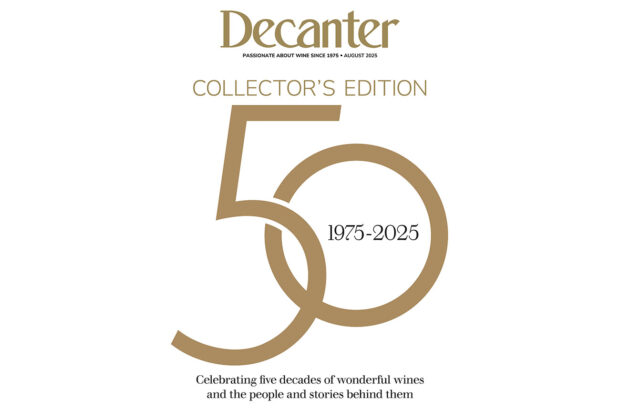I’ve never shared a cabin with Robert Parker on a 10-month sea voyage, and I won’t need to after reading The Emperor of Wine: The Rise of Robert M Parker Jr and the Reign of American Taste
This is an extraordinary exploration of the Parker phenomenon. It’s impeccably researched (the list of sources runs to a dozen pages), and so detailed you feel claustrophobically close to the Maryland guru. It’s unauthorised, but Parker has given tacit approval on his website’s bulletin board.
From the everyday fare of the middle-class household in 1950s Maryland, to the young Bob cutting short his first visit to France in order to get down to Morocco to ‘score some really good hash’, nothing is left out.
The author, journalist Elin McCoy, is particularly good at the almost-invisible brushstrokes that make a portrait. ‘His smile was warm and wide and eager, almost midwestern…’ she writes.
She is determined we see every facet of the man. She describes his clothes, his shorts, his shoes, his ‘blunt fingers’, his spitting style.
Often there’s too much detail. A tasting is anatomized in real time: ‘Garvey had lined up her 24 wines varietal by varietal on a long table in the winery tasting room…’
I couldn’t have guessed that a tasting at a winery would to take place in a winery tasting room, perhaps on long table.
But where the detail pays off is when McCoy shows her journalistic skills. She interviews every player in the famous ‘Affaire Faiveley’ of 1994 , in which Parker, his publisher Simon and Schuster, its chairman and several distributors were sued for libel, over something that Parker had written in the 1993 Wine Buyer’s Guide.
At the end of a favourable section on the Faiveley wines, Parker – in a sentence that was retracted – said, ‘reports continue to circulate that Faiveley’s wines tasted abroad are less rich than those tasted in the cellars – something I have noticed as well. Ummm…!’
Francois Faiveley – and many of his peers – were appalled at the implication, and sued. The case was settled out of court, but it caused immense damage. There is the suggestion that Parker is still not welcomed in Burgundy as he is in Bordeaux. Faiveley ‘continues to ask himself why Parker wrote those lines without talking to him first.’
McCoy demonstrates how her subject has the insensitivity of the highly sensitive: quick to take offence but slow to understand the effect of his words on others. After the Faiveley affair he wrote a “humorous” guide to Burgundy-speak that translated Monsieur Parker n’en sait rien as ‘We cannot influence him, nor can we bribe him.’ As an attempt at humour it sounded more like sour grapes, McCoy notes.
She’s good on his vindictiveness (she uses that word). Many journalists have been on the receiving end of one of Parker’s outraged faxes or emails. McCoy is unstinting in getting hold of the principals in every episode.
The material on the development of the famous palate, the power it has brought and the enemies it has made him (there have been death threats) is excellent, as is the chapter on the 1982 vintage that made his name. I was fascinated by the power play between Parker and his old-established rival Robert Finigan, whose career never recovered from his negative appraisal of the 82.
Other details: his father had a hyper-sensitive nose, his mother adored her only child (Dowell, as he’s known to his friends, after his middle name MacDowell) and never left him with a babysitter. His upbringing left him with the conviction ‘that he could go his own way with impunity,’ McCoy writes in an early chapter.
But it’s these comments that set the alarm bells jangling. That’s an interesting take on Parker, but one has the suspicion it’s written more in praise than judgement. In fact, the book too often veers away from critical biography and into hagiography.
Is it possible, for example, to retain your critical faculties while talking of your subject’s ‘semi-divine tasting ability’? And surely the only excuse for describing a wine critic as an ‘emperor’ is with irony – and there’s not much of that about.
Take this scene. The author is waiting for Parker in a Napa car park. He arrives.
‘A black patella band hugged his leg just below the knee; the knee was giving him trouble – in fact, he was limping – but he just hadn’t had enough time to schedule the arthroscopic surgery he needed.
‘His eyes looked a little red. He’d been crying in his room, he confided, because the wife of his best friend Park Smith was dying of a very aggressive brain cancer and he’d just been talking to him…’
What are we supposed to think? That here is a warrior, so busy in his quest for the truth that he has no time to tend to his wounds? A powerful, sensitive man who gets to a meeting despite terrible personal troubles?
The case of Park Smith is surely a tragedy, but here it’s cheap shorthand used to demonstrate a perceived truth about Parker. He cries in hotel rooms – how sensitive! Am I supposed to feel a lump in my throat in sympathy?
Not me. I see a journalist coming at my tear ducts with milking stool and rubber gloves, and run for the hills.
Which is a pity, because there’s lots to like in this book. You come away knowing a sight more about this clever, ambitious, driven, confident, arrogant, vindictive, generous, thin-skinned, neurotic, gregarious, emotional character than you did before.
If only it wasn’t quite so claustrophobic. When you share a confined space with someone for a long time you get to know them very well indeed – but you’re far too close for proper critical appraisal.
The Emperor of Wine: The Rise of Robert M Parker Jr and the Reign of American Taste is published by Ecco, an imprint of HarperCollins
Written by Adam Lechmere






